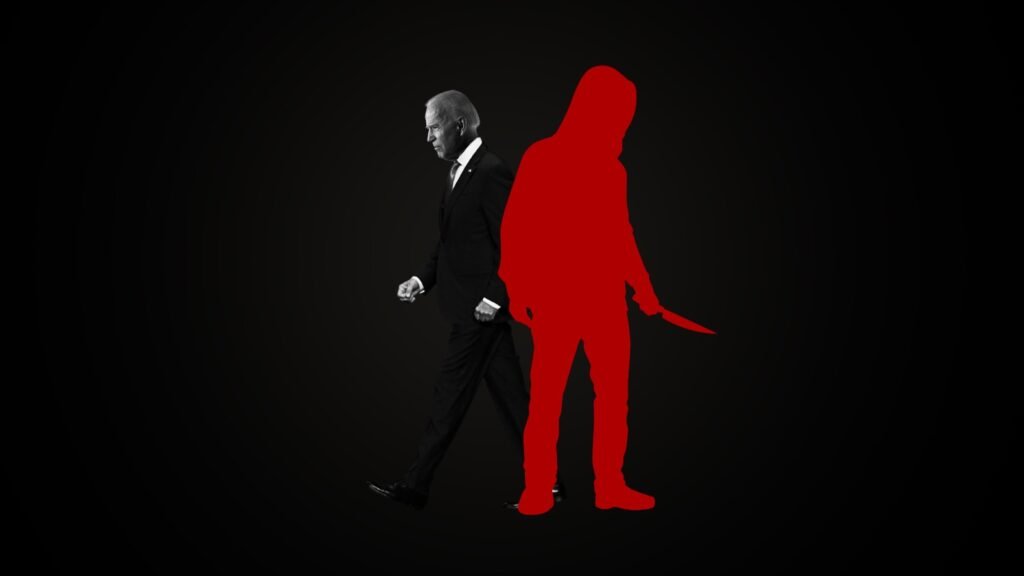On President’s Day, a newspaper report resurfaced a captivating chapter from Joe Biden’s ancestry: his great-great-grandfather faced charges of attempted murder following a brawl during the Civil War era. However, a stroke of presidential clemency altered the course of history when Abraham Lincoln pardoned Moses J Robinette, absolving him of any guilt.
Historian David J Gerleman, drawing from documents in the US national archives, detailed in The Washington Post how Robinette, Biden’s paternal forebear, found himself pardoned after a violent encounter with a fellow Union army civilian employee, John J Alexander, in Virginia. The altercation escalated, leading Robinette to draw a knife and wound Alexander.
Despite serving as an army veterinary surgeon during the Civil War, Robinette’s actions resulted in a conviction of attempted murder and a harsh sentence of two years of hard labor, as recounted by the newspaper. Despite his claims of self-defense falling short in court, Lincoln’s intervention with a pardon underscored the intricate interplay between justice and executive clemency in American history.
Pardoned on 1 September 1864, seven months before Lincoln was assassinated, the act of mercy towards Moses J Robinette by Abraham Lincoln adds a poignant layer to this historical tale.
In his discovery, Gerleman noted that the 22 pages of court martial transcript found in the national archives provided insight into a previously unknown aspect of Biden family history. This revelation occurred on a Presidents’ Day, falling just a week after Lincoln’s birthday on February 12, adding to the historical significance.
The historian remarked on how Robinette’s trial transcript, tucked away among numerous routine court-martial cases, unveiled a hidden connection between the two men and bridged the gap between two presidents across centuries.
Article II, Section 2 of the US Constitution grants American presidents the authority “to grant reprieves and pardons for offenses against the United States, except in cases of impeachment.” This power traces its origins to early English law, where the monarch held the prerogative to grant mercy, a tradition that crossed the Atlantic Ocean to the American colonies. Typically, US presidents exercise their pardon power towards the end of their terms.
Recent presidents have wielded their pardon powers with varying frequency. George W. Bush issued 200 acts of clemency, while Barack Obama granted 1,927. Donald Trump utilized this authority 237 times, and Biden has exercised it 14 times so far, excluding thousands pardoned for marijuana possession.
Biden’s pardons for marijuana offenses specifically apply to convictions for use and simple possession on federal lands and in the District of Columbia.
Jimmy Carter granted 566 acts of clemency, excluding over 200,000 for Vietnam War draft evasion.
Lincoln’s pardon to Robinette was among the 343 acts of clemency he issued.
According to The Washington Post, the altercation between Robinette and Alexander occurred on the evening of March 21, 1864, at the Army of the Potomac’s winter camp near Beverly Ford, Virginia.
Alexander, serving as a brigade wagon master, overheard Robinette making derogatory remarks about him to a female cook, sparking an argument that left Alexander injured. While Robinette faced charges of attempted murder, he was ultimately convicted on other counts and served his sentence imprisoned on Dry Tortugas island near Florida.
Three army officers who were acquainted with Robinette later appealed to Lincoln to overturn his conviction. They argued that the punishment was excessive given the circumstances: Robinette had acted in self-defense against a teamster who was physically stronger and larger. Their appeal, facilitated by a West Virginia senator, highlighted the urgency of the moment that led to Robinette’s actions.
The senator characterized Robinette’s sentence as unduly harsh, prompting Lincoln’s private secretary to request a review of the trial transcripts. Upon receiving the petition, Lincoln issued a pardon on September 1, 1864, for the remaining portion of Robinette’s punishment.
Following his release from prison, Robinette returned to his family in Maryland to resume farming. His death in 1903 was commemorated in a brief obituary, which praised him as a man of education and refined manners.
Interestingly, the obituary made no reference to Robinette’s wartime court-martial or his connection to Lincoln, according to The Washington Post. Robinette passed away approximately 12 years before the birth of Biden’s late father, who was his great-grandson.


